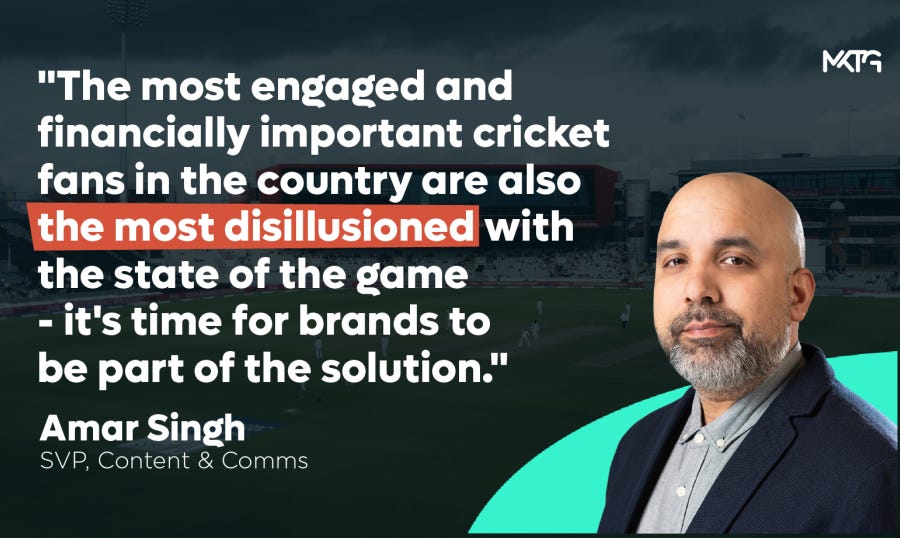Lionel Messi: Football's certain hero in uncertain times named world's most marketable athlete
With social media becoming more polarised, the prolific but apolitical Inter Miami and Argentina captain is sport's safest bet.
Lionel Messi has been named the world’s most marketable athlete by Sports Pro.
The Inter Miami star sits at the top of the annual list filled with socially-conscious athletes.
Here’s this year’s top 10.
1.Lionel Messi
2.LeBron James
3.Alex Morgan
4.Giannis Antetokounmpo
5.Megan Rapinoe
6.Mikaela Shiffrin
7.Lewis Hamilton
8.Simone Biles
9.Kylian Mbappe
10.Max Verstappen
With social media providing sports stars a platform of their own, a generation of athletes have emerged transcending the confines of their sport to become global icons.
Even when these athletes have risen to greatness in their sport…they have gained an added facet of cultural relevance, through the causes they advocate.
Lewis Hamilton is, arguably, the greatest Formula 1 driver of all time…yet his fight for more diversity in the paddock might prove to be of greater significance when we reflect on his legacy.
This year, Mikaela Shiffrin became the most successful alpine ski racer of all time after claiming two successive World Cups to add to her two Olympic gold medals.
Shiffrin earns more than the highest earning male in her sport, but is a vocal opponent of gender pay gaps across sport.
Marcus Rashford campaigned to feed children from low-income households, Naomi Osaka encourages her fans to put their mental wellbeing first, Megan Rapinoe advocates for LGBTQ+ rights. The list goes on…
These are high-achieving sports people who found a higher purpose, and, coming out of the pandemic, with 86 per cent of fans saying they were interested in cause related marketing (compared to 44 per cent in 2019), their marketability rose to new heights.
Consequently, our expectations for these socially-conscious sporting figures change.
This week, LeBron James received a barrage of negativity for posting the following statement on his Instagram account.
For many of James’ followers, the language chosen for the statement did not sit well with his previous activism and support for historical figures such as Malcolm X and Nelson Mandela. His post and subsequent Instagram posts are now peppered with negative comments.
In the powder keg of division that social media has become, athletes are presently being asked by fans to ‘speak out’ and it seems, pick a side, on the tragedy unfolding in the Middle East.
As the FA found out this week, anything you do or do not do will be measured against the precedents you have set.
Meanwhile, England cricketer Moeen Ali showed his support for Palestine by posting a Malcolm X quote with a Palestine flag.
Shortly after posting it he took that image down, possibly fearing a backlash, but then reposted another image with the same quote and comments disabled.
The backlash towards England’s vice-captain on one British newspaper’s website was so relentless, that editors had to turn off comments at the foot of the article.
Unlike the immediate aftermath of Russia’s invasion of Ukraine in 2022, It’s fair to say that sport - and indeed, some of the world’s biggest brands, have struggled to find the right words this time.
There’s no question that athletes have used their platform to help make the world the better place.
While sponsors diverting their budgets towards causes which resonate with their audience can lead to wonderful things.
But evidence is growing that social media - the all-important arena in which this is all communicated and where hearts and minds are won - is in decline.
The shortcomings of X, formerly known as Twitter (once my favourite platform), are laid bare in times like this.
Paid-for accounts spread fake news, and the platform’s controversial owner, Elon Musk even posts his endorsement of accounts which have made false claims and spread antisemitism.
With TikTok the unmitigated success story of social media over the past five years, the mimicking from other platforms, means less people are seeing their friends’ pictures on Instagram or Facebook and are more likely to see ads or content posted months ago by influencers, fed to you by the relentless algorithm.
Earlier this year, GWI reported that social media usage had dropped for the first time since 2014, and that a growing number of Gen Z users were trying to limit their time on platforms.
There’s no doubt that toxicity, culture wars, trolling, tacky ads and doom-scrolling have accelerated this sense of collective digital fatigue.
It’s also why platforms such as this one, Substack, are thriving, because people are increasingly seeking context, opinions and information from a few preferred sources and a change of pace from the super short-form videos flooding their feeds.
(For some considered words from a former athlete, please read Kareem Abdul-Jabbar’s take on the conflict in the Middle East.)
This brings me back to Lionel Messi.
The 36 year-old added credence to claims that he is the greatest footballer of all time, by completing the set when he lifted last December’s World Cup.
In a top 50 list filled with socially-conscious athletes, Messi is notable for being tight-lipped on the biggest and most contentious issues.
While it would be unfair to say Messi has not supported causes - he has worked with organisations such as UNICEF, and gave generous donations to medical centres in Argentina and Catalonia during the pandemic - he is notably apolitical.
This is partly why for close to two decades, Lionel Messi has been the safest bet in sports marketing.
His various global partners such as Adidas, Pepsi, Budweiser and Hard Rock, value the simplicity of his appeal.
Such is Messi’s teflon-like image, questions over a lucrative ambassadorship with Saudi Arabia’s tourism authority or partnership with controversial crypto fan tokens firm Socios, have bounced straight off him.
Messi is widely expected to win his eighth Ballon d’Or later this month and already holds a string of records that are unlikely to be broken for years.
Since moving to Inter Miami in July, Messi’s return on the pitch has continued to boost his marketability, with 11 goals and five assists in just 13 games.
In August, the MLS club won its first silverware since its formation in 2020, as Messi helped them win the Leagues Cup.
It has been this way throughout this career.
Messi has stayed at the centre of football zeitgeist through his on-pitch achievements - scoring and creating goals in every game he plays while hoovering up silverware along the way - and not because he was dating a pop star, making daring fashion choices or, as it turns out, speaking out against injustice.
Socially conscious athletes are here to stay. Their causes help them take on added relevance for brands looking to drive purpose through sport.
But in an increasingly divided, polarised social media ecosystem, where marketing campaigns are won and lost - Lionel Messi is an outlier who can traverse division.
He’s the world’s most marketable athlete and he’s a certain hero in uncertain times.
Assessing English cricket’s greatest challenge
The ICC Cricket World Cup in India has delivered no shortage of great moments and upsets at this early stage, notable Afghanistan’s triumph against England.
Globally, these are exciting times for cricket, with a T20 men's and women's tournament set for the 2028 Olympics in Los Angeles.
However, this has been a hugely challenging period for English cricket, with a damning inquiry concluding that the game is beset with structural and institutional racism.
At MKTG, we worked with our partners at dentsu Sports Analytics to take the pulse of cricket fans and found that many are deeply disillusioned about the future of the game, particularly those from ethnic minorities.
Non-white cricket fans are all more likely to agree that racism, elitism, sexism and drinking culture are prevalent issues in the sport.
I wrote a piece exploring these fan insights and looking at how cricket's brands and sponsors can play their part in making the game more inclusive.
The Sports Marketeer podcast: Football's fan-powered content revolution with Joel Beya
More than a thousand people have now listened to the first three episodes of The Sports Marketeer podcast, which has truly surpassed my expectations.
Analytics show that the podcast has been downloaded all over the world including by listeners in Nepal, Peru, Hong Kong, Thailand and Lithuania.
Episode 3 with the multi-talented Joel Beya - the CheekySport and VIBE with FIVE presenter, has had a great response.
Do give it a listen if you would like to learn more about fan-first football content.
Episode 4 is coming soon!
If you would like to put forward a guest for the podcast please email me at amarjourno@gmail.com.
And finally…
Thanks so much to all of you who have shared and recommended this newsletter.
If you would like to join the 622 subscribers including professionals working at Premier League, Bundesliga and LaLiga football clubs, governing bodies, marketing agencies and global brands, please hit subscribe and share with your friends and colleagues.








